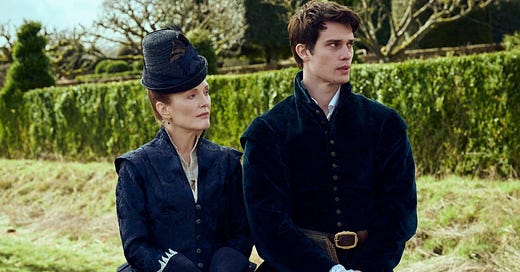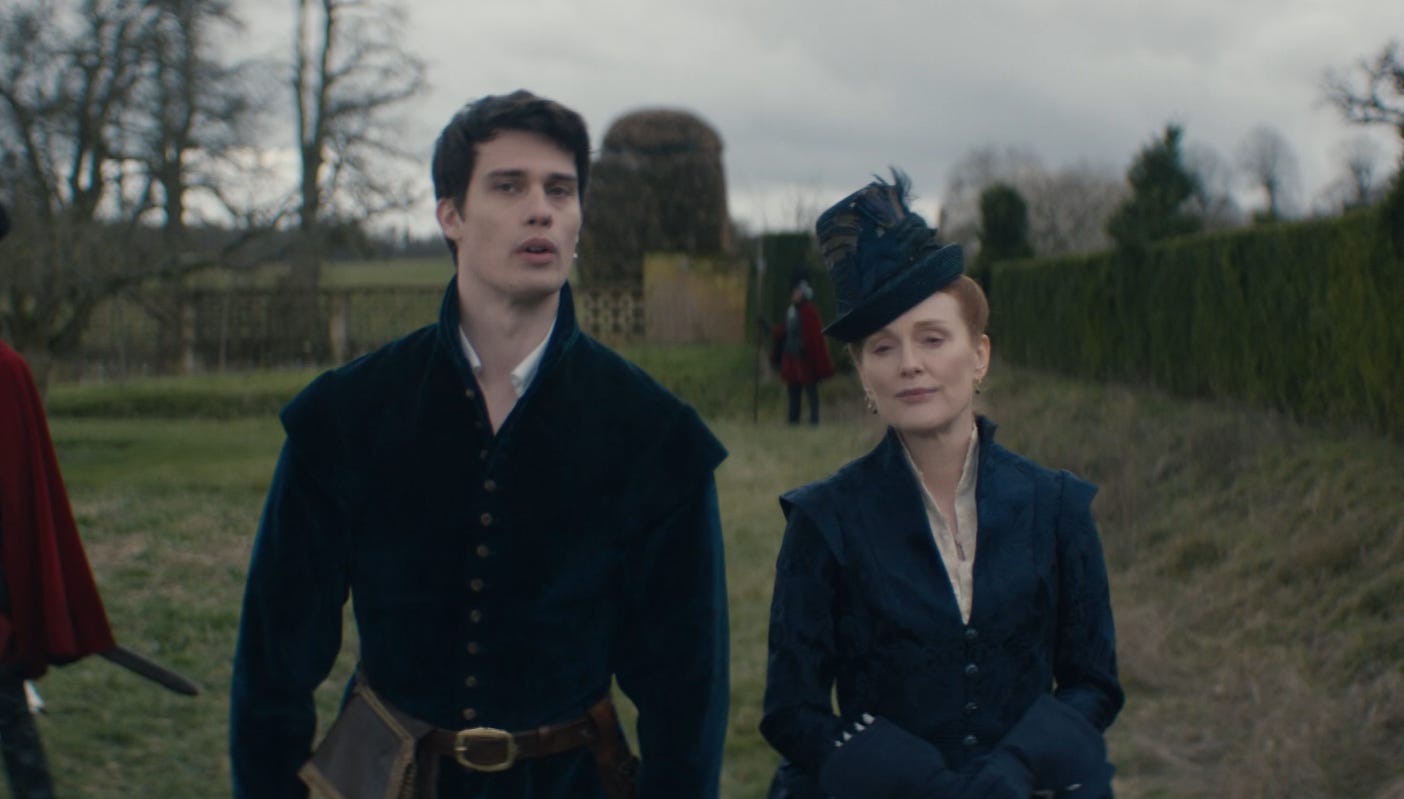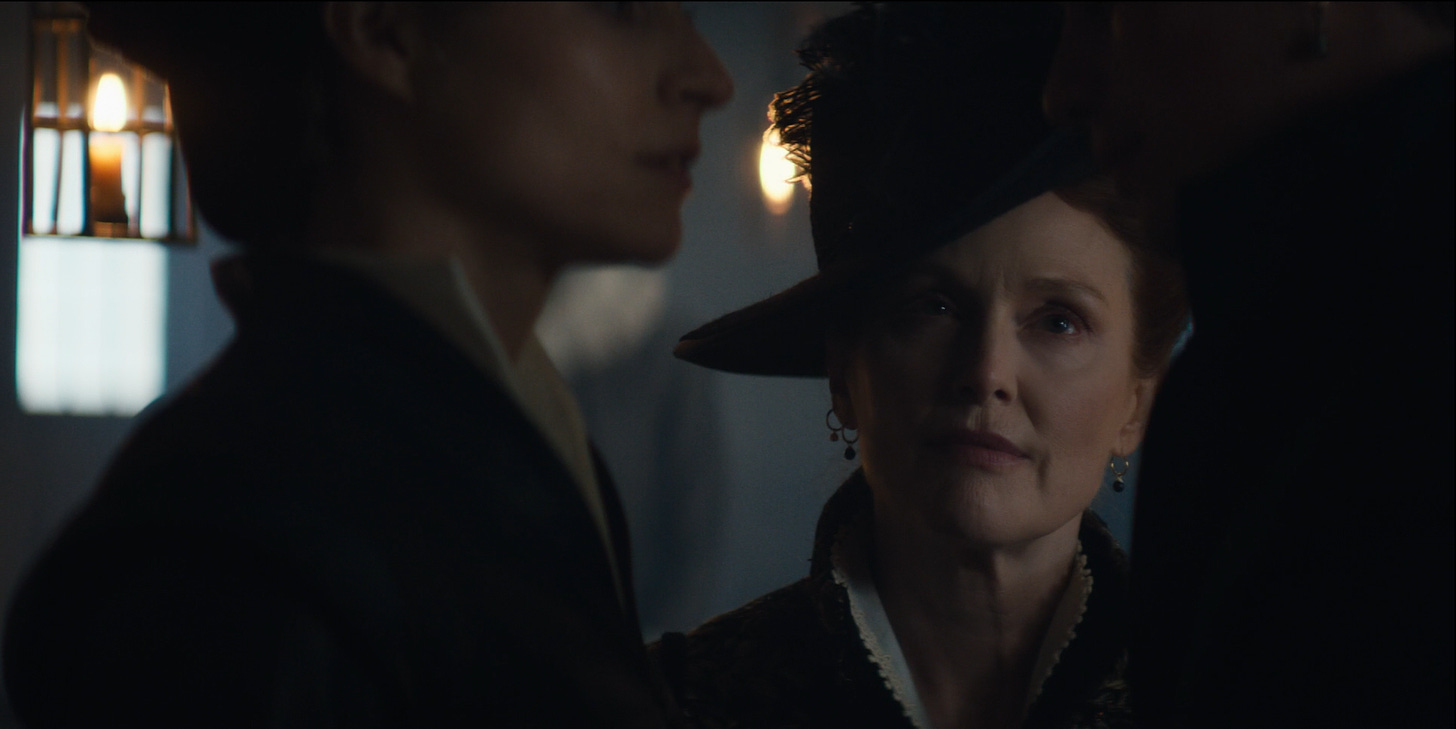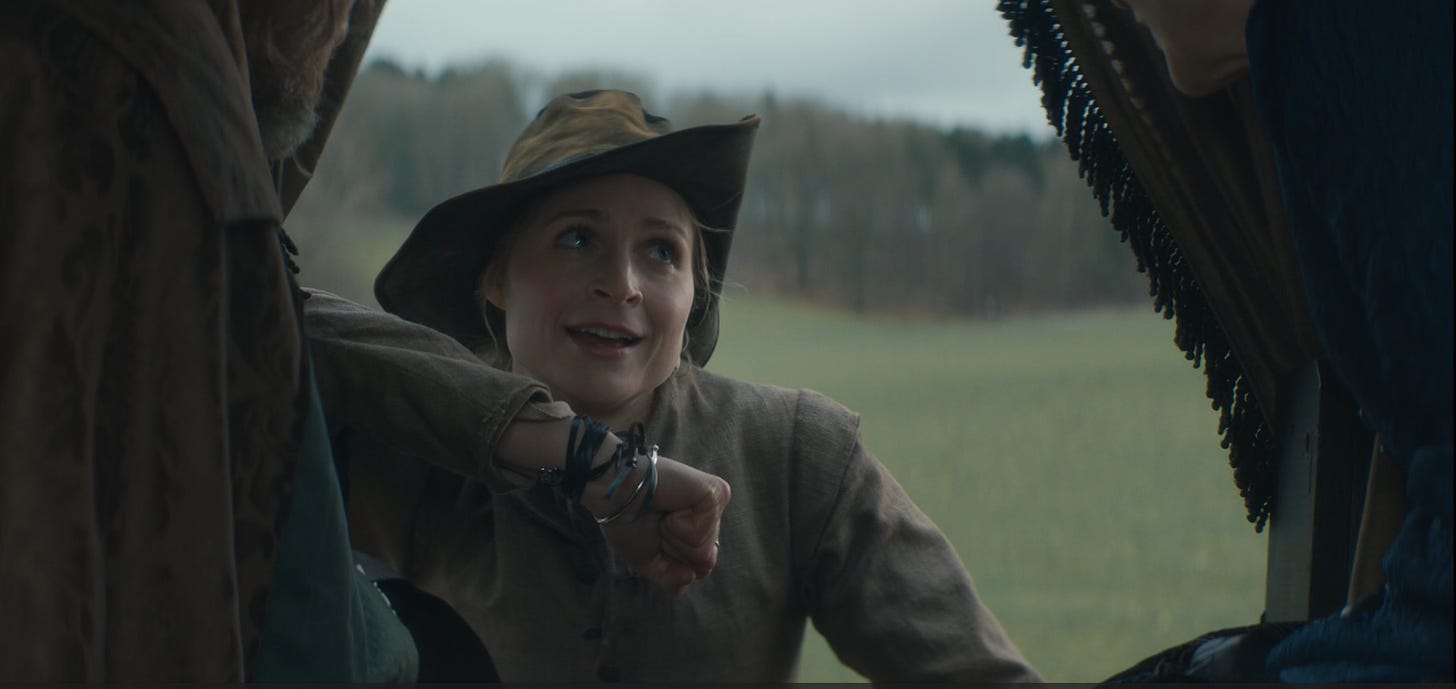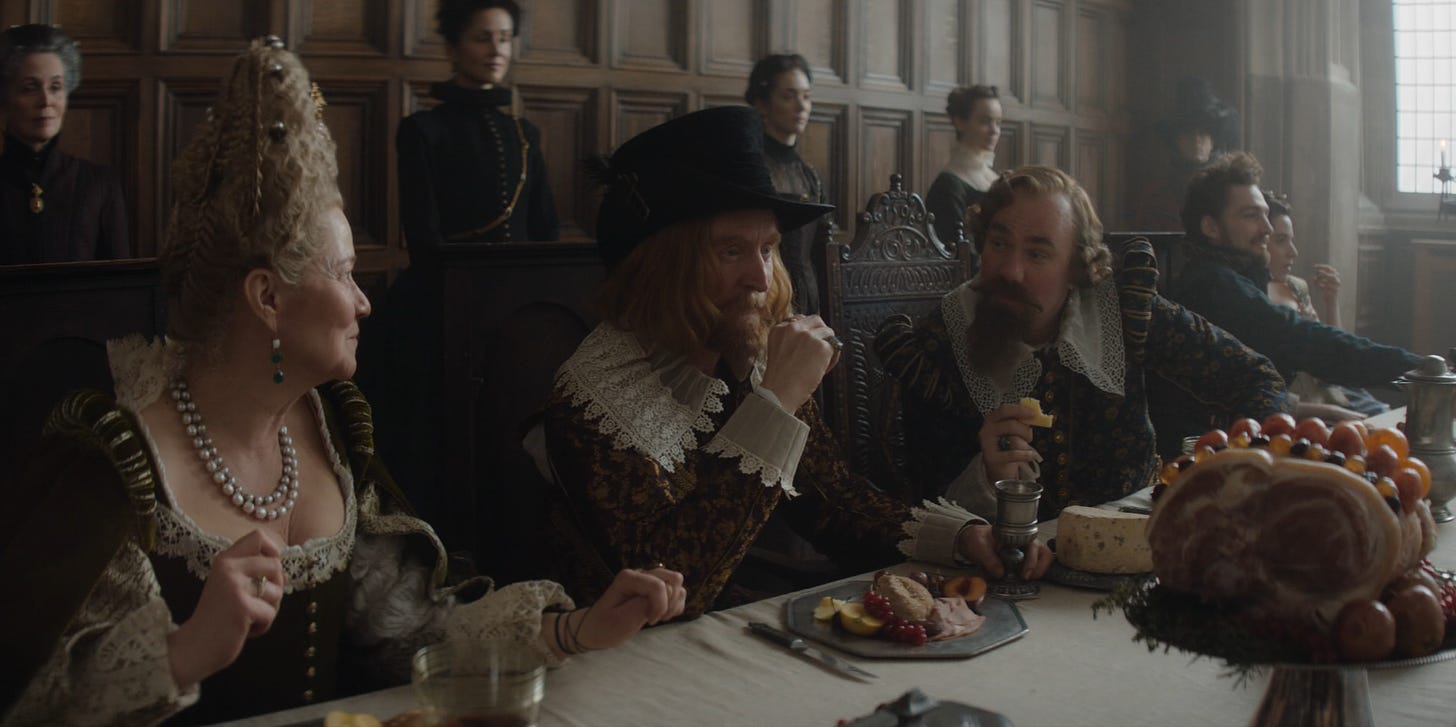Created by: D.C. Moore
If you believe this lustful, scorching, blackly funny story of the lives of the Countess of Buckingham and her vain, gorgeous son George, you’d think everyone in seventeenth century England was queer. Who knows? Maybe they were. But it has most certainly gotten to the point lately where I feel like I’ve seen Nicholas Galitzine’s bare skin more often than my own.
While he has certainly become a hero amongst the boys for daring to take on some of the most talked about queer roles in Hollywood of late, it’s the girls we’re here to talk about.
From the outset I’ll say this—the acting in Mary & George is note perfect, but what else would you expect from this cast? More though, the writing is delicious and salacious, the sets and costumes stunning, and the music just divine. It thunders along at a heady pace, keeps the shock factor to where it will be most effective, and it’s just so snide and clever. There, all the superlatives are out of the way. And all these things are true, you can safely believe the hype.
But I’m pissed off. I am annoyed at something in the plot I don’t want to disclose because it’s a giant spoiler, but you know that there’s really only one thing that tends to get me this irate. I get why it was done, and I would even applaud it if it weren’t such a cliché at this point, but just know, despite anything else I write from here, the reason why this show lost a whole star from me was this one thing.
The story follows Mary of Villiers who, understandably underwhelmed with her lot in life, contrives to use her two greatest assets—her shrewd brain and her gorgeous son—to raise both their fortunes by embedding themselves (pun intended, there’s a reason that word exists) in the court of King James.
Don’t mistake this for a biopic. It’s based on historical figures to be sure, but this is pure entertainment. There’s a lot to romp through in just seven episodes and romp it certainly does. It starts out more deliciously funny and darkly comic, then skews heavily into drama as the episodes unfold. Nobody is safe, not even the titular characters, and people rise and fall in mean, witty, gory, and downright cunning ways.
Even an evil social climber needs companionship though, and Mary (the iconic Julianne Moore) finds a co-conspirator in Irishwoman Sandie (Niamh Algar) who she meets in a brothel and falls in love with, as far as anyone of her ilk can. Sandie is a cross between a pirate and a courtesan. She has nothing to lose and rolls the dice with the despicable Mary who she seems to love, fear, desire and loathe in equal measure.
More than once we see Sandie has a conscience and tries to abide by it, not that this does anything to reel Mary in. Honestly, she’s too good for this. She’s the kind of queer character we all want to lift out of the muck and write other, happier, raucous stories about. This is the kind of character who audiences write fanfiction about. Algar does an excellent job holding her own with Moore, which is difficult under normal circumstances, much less when Moore has been ordered to literally chew the scenary.
Still, both these tough women represent something important our culture forgot for so long—the fact that history was written by men doesn’t mean they were the only ones in it. It wasn’t just Queen Victoria and that’s it. We need these stories about women to help our imaginations fill the gaps in our taught and written history. There are shades of Yorgos Lanthimos’s The Favourite in here—an absolutely barmy plot, with powerful, sexual, ambitious women run amok, taking down all the men who dare to get in their path.
In the end, George and Mary are the only players that matter, and they must outwit even each other to survive. The plot skews Shakespearian at the close, being both a tragedy and a comedy of errors. It does have a sense of having bitten off more than it can chew and the ending feels a little rushed.
We wonder how low everyone can finally go before they are annihilated, and who, if anyone, will be left standing. What legacy will be left behind, and who really cares There are winners and losers to be sure, but there are no happy endings here, only destructive, clever, devious people fighting and scheming for their lives in a bawdy, historical, gorgeous setting.
We are reminded both thematically and obliquely in the script that we all die, we are all consigned to history somehow, and will have no say in how that history is written.


